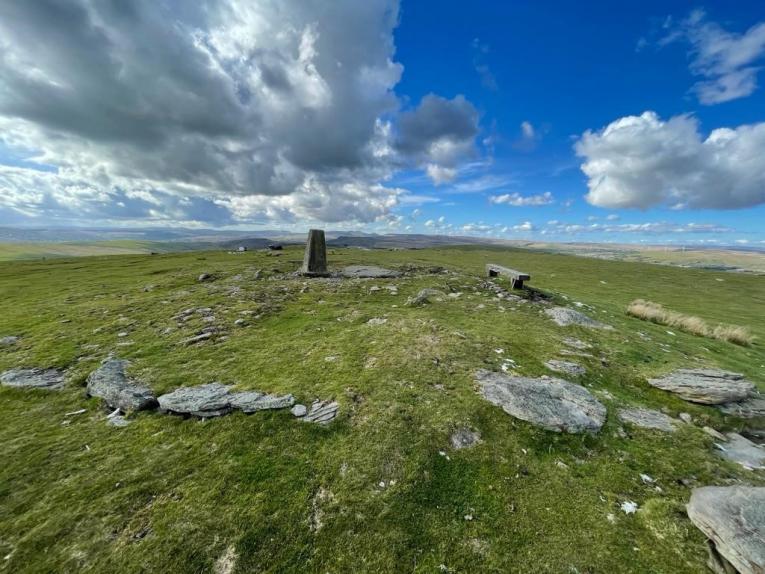
A campaign to tackle fly-tipping blighting the historic and beautiful Gelligaer & Merthyr Common is being stepped up by a team of partners agencies. Additional manpower, vehicle stop-and-check events, increased surveillance and educational awareness are just some of the activities planned.
The Comin Cydweithredol - Common Collaboration project run by Gelligaer & Merthyr Commoners Association is collaborating with Fly-tipping Action Wales, Natural Resources Wales and Caerphilly and Merthyr Tydfil County Borough Councils and aims to take a proactive approach to dealing with the large scale fly-tipping problems on the common.
Sadly, the common suffers from a high level of fly-tipping which is causing substantial damage to the landscape and poses real dangers to grazing animals, wildlife, recreational users, farmers and effects the wider ecology such as impacting water courses.
"The Common is a working and living landscape and is vital for supporting the local agricultural and rural community. It is also home to an abundance of wildlife, including the iconic Red Kite and threatened species such as Lapwing and Curlew,” said Huw Williams, Chair of Gelligaer & Merthyr Commoners Association.
“Unfortunately, it faces high levels of anti-social behaviour, particularly fly tipping, from a minority of people, which is having a harmful impact."
Although enforcement action against fly-tippers will be a key element of this partnership approach, education and awareness raising activities with the community will also be important aspects.
To tackle fly-tipping on the common we need the support of all members of the public in local and surrounding areas to manage their household waste responsibly as 70% of fly-tipping incidents contain waste that has been collected from people’s homes.
Educating the local communities on their duty of care towards their waste and ensuring members of the public and businesses use a registered waste carrier is key to tackling this blight on our environment.
Joining the partnership will be specialist officers from Natural resources Wales. As part of the project, a number of stop and check events will be organised and the project will enable more fly-tipping incidents to be investigated, with a view to prosecuting those offenders who continue to fly-tip across the common.
This new partnership sits within the larger Comin Cydweithredol – Common Collaboration project. This project will focus on three key themes: tackling landscape crime, habitat restoration & creation and public engagement activities. Community and school engagement will be a key element of the project, with opportunities for members of the public and local schools to take a proactive role in the upkeep of the common. Regular volunteer sessions will be held along with training sessions on traditional countryside crafts. Schools will be encouraged to explore and learn about the common, its history and importance to the local area.
Gelligaer & Merthyr Commoners Association will deliver the project in partnership with the Gelligaer & Merthyr Common Partnership. The Partnership is comprised of landowners, representatives from both local authorities, officers from Gwent & South Wales Police, members of South Wales Fire & Rescue Service, Keep Wales Tidy, Cadw, Welsh Government, Fly-tipping Action Wales, Natural Resources Wales, Menter Merthyr, Valleys Regional Park and other key stakeholders.
Project Ranger Mark Ward said “The Common is a spectacular landscape - a vital green lung of the valleys. At 3,000 hectares, this great expanse of land plays its part in the water and carbon cycles, it helps to slow water runoff and has a part to play in the fight against climate change”
“The Common means so much to so many people. For some it is an area to graze animals, to others an open space for health and wellbeing. Some enjoy the rich biodiversity and historical assets, while others may just enjoy it as scenic route to work”.
“Respecting the Common, cherishing and managing it in a sustainable manner to pass on to future generations is everyone’s responsibility, and we hope that this project will help people realise that.”
This project has been made possible by securing a grant from the European Agricultural Fund for Rural Development (EAFRD) for its Sustainable Management Scheme project funded through the Welsh Government Rural Communities – Rural Development Programme 2014-2020, which is funded by the European Agricultural Fund for Rural Development and the Welsh Government.
